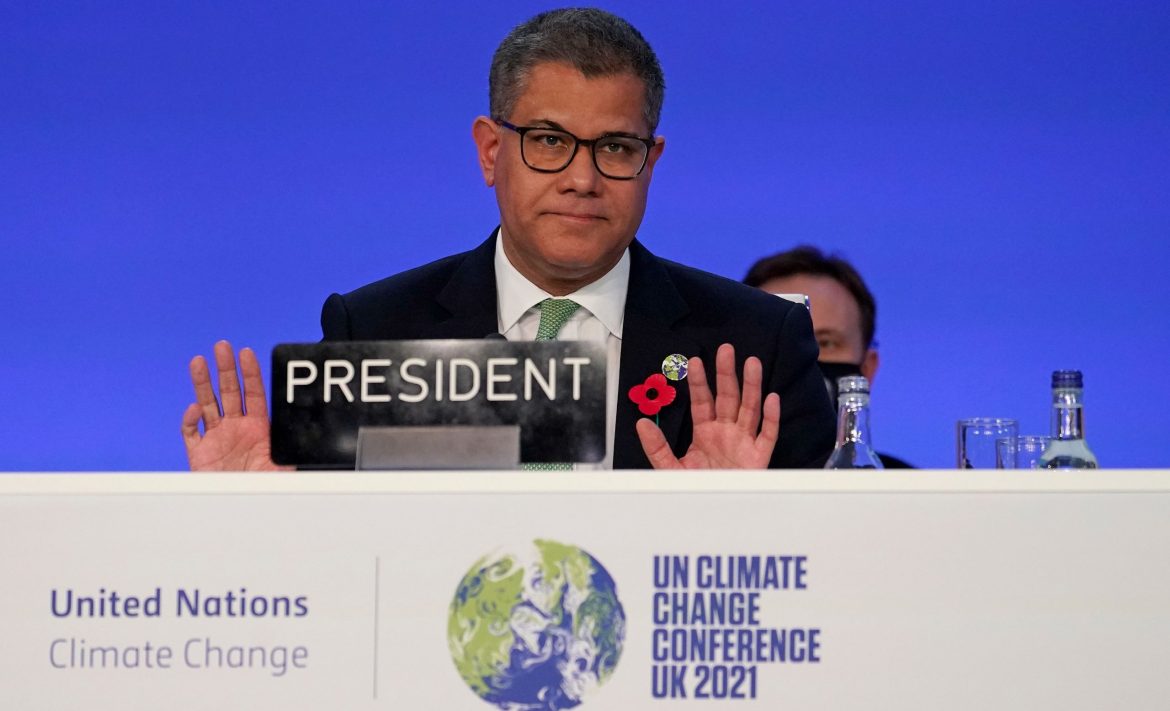COP26 in Glasgow ended on November 12 after two weeks of intense negotiation. The conference was widely described as the world’s last chance to address the climate crisis, but it has been widely considered to have failed.
Leaders and delegates from smaller, poorer countries which are more greatly affected by climate change brought urgency and desperation to the conference, begging for change before it is too late for them.
However, those from the largest and richest countries – including our own – seemed to have a hidden agenda of protecting themselves over the planet, leading to empty posturing and, ultimately, disappointment.
The conference began with four main goals: to reach net-zero emissions by 2050 and limit global temperature growth to 1.5°C above pre-industrial levels; to protect communities and habitats; to mobilise green finance; and to co-operate in finalising the Paris Agreement and making new sustainable commitments.
The conference was driven by shocking new data from the World Meteorological Organisation’s (WMO) ‘State of Climate Report 2021’. The report alarmingly states that greenhouse gas concentrations and rising temperatures have left the planet in “uncharted territory”, causing “far-reaching repercussions for current and future generations”.
In light of this, WMO Secretary-General Professor Petteri Taalas said: “At the current rate of the increase in greenhouse gas concentrations, we will see a temperature increase by the end of this century far in excess of the Paris Agreement targets of 1.5 to 2 degrees Celsius above pre-industrial levels. COP26 must be a turning point for people and planet.”
The severity of the problem facing world leaders and delegates at the conference was undeniable.
David Attenborough opened the event with confidence. “If, working apart, we are a force powerful enough to destabilise our planet, surely working together, we are powerful enough to save it,” he said.
The question was whether world leaders – who almost by definition have to work in the short-term – would have the drive to drag their minds away from their pockets and use their power to commit to this long-term battle.
While some positive commitments came out of the negotiations, such as the Global Methane Pledge aiming to cut methane emissions by 30% by 2030 and the Glasgow Breakthroughs initiative to boost global funding for green technology, the short-term ultimately came up trumps.
Climate activist Greta Thunberg – who did not receive an invitation to speak inside the conference, perhaps due to her blunt realism – was vocal with her scepticism as she led protests on the streets of Glasgow.
“Inside COP there are just politicians and people in power pretending to take our future seriously, pretending to take the present seriously of the people who are being affected already today by the climate crisis,” she said.
Today hundreds of thousands all over the world marched for the climate, sending a clear signal to people in power at #COP26 to protect people and planet. Our so-called “leaders” aren’t leading – THIS is what leadership looks like! #UprootTheSystem
— Greta Thunberg (@GretaThunberg) November 6, 2021
📸: Glasgow, Oliver Kornblihtt pic.twitter.com/v9zbicTGcb
Before the final days of the conference, there was at least some faith that she might be wrong. The existence of the event, and the seeming urgency which many delegates had brought to it, gave many of us hope that now might be the time for serious action, not just electorate-pleasing rhetoric. We should’ve known better.
Neither Boris Johnson nor Joe Biden allied their countries with the Beyond Oil & Gas Alliance – an international coalition founded by Denmark and Costa Rica aiming to ‘phase out’ oil and gas production. While 40 countries, including the UK, did sign a commitment to shift away from coal production in the 2030s, the US did not.
Johnson’s government could be about to approve a new oil field off the coast of Shetland, and Biden’s held the biggest auction of oil and gas drilling rights in US history just last Wednesday.
The leaders of two of the world’s biggest powers have exposed both their hypocrisy and their real priorities – transient economies rather than the future of the planet.
The phrase ‘phase out’ ended up being the most contentious element of the conference’s ultimate result: the Glasgow Climate Pact. The originally proposed pact contained the “phase-out of unabated coal power”, but hours before the conference was due to end, Chinese and Indian delegates requested the wording be changed to ‘phase-down’, rendering the final agreement significantly because no definitive end to coal production is stipulated.
A moment in history
— Rt Hon Sir Alok Sharma (@AlokSharma_RDG) November 13, 2021
The Glasgow Climate Pact is agreed#COP26 | #TogetherForOurPlanet pic.twitter.com/qq4ygsokXm
The conference’s president Alok Sharma was visibly emotional in his closing speech of the event, apologising for the “deep disappointment” felt by many nations after the last-minute changes to the pact.
“I am very pleased to say that we now have in place the Glasgow Climate Pact, agreed amongst all the Parties here. […] I would say, however, that this is a fragile win. We have kept 1.5 alive. […] But I would still say that the pulse of 1.5 is weak,” he said.
Fossil fuels are the biggest threat to both the planet and modern human history, yet the one event designed to save us has not sufficiently curbed their production. Thunberg was right. The lingering impression of the whole conference is, indeed, a room full of people “pretending” to prioritise the future, when they were really unable to pull their minds away from the immediate present.
Politicians are not the people who should be controlling the future of the planet. They are bred to care more about the opinion of the electorate during their primacy than about the concerns of the long-term future. If sufficiently funding green projects would entail upping taxes, politicians will almost always oppose any such notion, just so they can avoid upsetting the people and stay in power.
The movement to save the planet must be led by the people whose lives truly depend on it. The ones who have years of experience and intricate knowledge. The ones whose blood boils when they see the ice melting and the Earth burning.
Passion as well as pragmatism are needed to drive the green revolution, but the leaders at COP26 seemed to be more passionate about protecting their political stability and their pockets.





